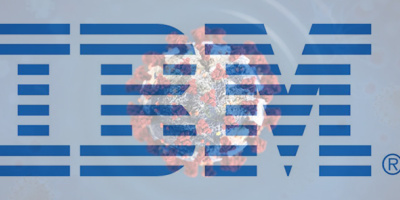This week completes one year's worth of these tirades. It has come to my attention that my writing in this space has generally been a tad negative. Perhaps that's why MC Press labels these columns as "Tech Tirades" rather than, say, "weekly affirmations." Surprisingly, negativity is not a highly sought-after quality in someone, such as me, seeking to sell his marketing communications services. To rectify the detrimental but probably accurate perception of me that is perpetuated by these tirades, I'm going to use this week's column to make some very positive suggestions about how the people who develop our technologies can best direct their efforts in order to benefit humankind in the future.
First, self-cleaning ovens are a fabulous invention, but the idea can be taken so much further. Self-cleaning toilets, bathtubs, sinks, floors, windows, window ledges, tables, chairs, desks, clothes, computer keyboards, television and computer screens, stovetops, and refrigerators would also be great ideas.
What made me think of this is that I once planned to clean my fridge. I bought all of the necessary cleaning fluids and rented the needed heavy industrial equipment, but Greenpeace quickly threw up a picket line and eventually got an injunction to stop me. It seems that some new life-form, which exists nowhere else on this planet, evolved from a floret of broccoli that got lost at the back of my refrigerator. Greenpeace successfully argued in a court of law that cleaning my fridge would lessen biodiversity. Now my only options are to live with the new organism and hope that it doesn't eat all of my food or donate my fridge to science and buy a new one. A self-cleaning refrigerator would have prevented the problem, without it ever having a chance to develop in the first place.
Inventors should also direct more of their attention toward medical devices. I'm still waiting for the "medical tricorders" depicted in Star Trek. If you're not familiar with the various Star Trek television series and movies, a medical tricorder is a device about the size of a television remote that a doctor waved over the patient to immediately determine not only whether the patient was suffering from a disease or injury, but also the exact nature of the ailment if one existed.
Medical tricorders would be a tremendous advance over existing techniques. I'm most eager to see them replace a procedure that, once I passed age 40, became a regular part of my annual physicals, which I undergo every 14 to 18 months. This particular procedure involves my doctor gloving up and checking my prostate. At least he says he's checking my prostate. I suspect that it's my tonsils that he's going after. In a similar vein, replacing colonoscopies with a quick medical tricorder scan would be an at least equally good thing.
I'm sure that women can come up with a number of medical procedures that they would like to see replaced. I just don't have intimate knowledge of them (the procedures, not the women, but not them either). Feel free to mentally replace the prostate reference above with your own personal notion of a medical torture treatment.
Just as an aside, why is it that no matter what the scientific field, the characters in Star Trek had only tricorders? Why not bicorders, quadcorders, quintcorders, or any other multiple-corders? Did the writers of the series think that, in the future, people will have some mystical attachment to the number three? If you're an exceptionally fervent Star Trek devotee and you are aware of an episode in which someone on the show had some multiple-corder other than a tricorder, please try to show some restraint and keep that information to yourself. I know that you find this hard to believe, but the rest of us really don't care one iota.
Medical tricorders and self-cleaning everything might be a little difficult to develop, but here's an easy suggestion. I'd like to see cell phones modified so that, when talking on one, if you raise your voice above a certain decibel level in a public place, the cell phone will automatically shut off. Before powering down, the phone should play a loud message directly into your ear to the effect of, "Your cell phone privileges have been temporarily withdrawn because you are behaving like an incredibly rude jerk."
Once the cell phone makers have done that, they can work on another, more difficult enhancement. Using the digital cameras that are increasingly being incorporated into the phones, along with voice recognition and databases containing information about your friends and associates, cell phones should also automatically shut off if you are in the physical presence of anyone you know. This would help to enforce an etiquette rule that I suggested in a previous tirade: The friend sitting next to you should always take precedence over a voice on your cell phone.
Staying with the communication theme, I'd also like to see an enhancement to my email software. I want an add-on that not only effectively blocks spam, but also seeks out the true identity of the spam sender, not just the bogus return address on the missive. It should also verify other information about the sender, such as gender and location. The software should then use this information to send several emails to the spammer every hour. The emails should promote female-oriented products to male spammers and male-oriented products to female spammers. The software should also send the spammer enticing offers for low-interest rate mortgages available only to people living somewhere other than where the spammer lives. A spammer who has already paid off his or her mortgage would get a particularly high volume of this type of message.
While we're talking about the Internet, I've got a suggestion that I'm willing to let the Internet search engine companies have for free. The greatest benefit of the Web is also its greatest drawback: Everyone is free to publish anything they want at an incredibly low cost, sometimes free, even if their ramblings are total, unadulterated crap. There is none of the editing oversight that exists in the more reputable of the traditional media. Furthermore, having to reach deep into your pocket, or convince someone else to do so, before you can publish your work adds a level of discipline that is not present on the Web.
Internet search engines could provide us with a very valuable service by building garbage filters into their searches. Employing these filters, the search results would include only sites that provide fact, not fiction, assuming that you are looking for facts. If you're searching for fiction, the filters would, with sufficient leeway to recognize the subjective nature of the judgments, block bad fiction and show only the good stuff. By the way, I wonder if, under those conditions, the search engines would find these columns. Never mind.
Computers have been wonderful inventions, making possible many previously impossible things and making many previously possible activities easier, faster, and cheaper than they used to be. However, computers could be improved tremendously with one very simple and not terribly expensive change. Manufacturers should strengthen computer casings and use shock absorbers to cushion all of the interior workings. That way, nothing will break when we violently throw the computer against the wall in frustration after having seen yet another totally incomprehensible error message flash very briefly before our eyes just before our computer shuts down unexpectedly. (Fortunately, I saved my work before I interrupted writing this very column to answer a phone call. My computer crashed while I was on the call.)
In another area of our lives, car manufactures could go a long way toward improving safety, not to mention humanity's collective sanity, just by modifying horn technology. Car horns should be capable of honking at different volumes and frequencies depending on the conditions. Because many people cannot be trusted to make the right decision about which horn volume to use, the whole process should be automated through the use of sensors, video cameras, and powerful onboard computers.
Under my plan, the current horn volume would be reserved for situations where the onboard computer detects a true emergency that could be avoided by making a pedestrian or the driver of another car aware of your presence. Honking levels would be graduated from the current level down to one that, unbeknownst to the driver, would sound deafeningly loud inside the car, but would be inaudible outside. This would be used in the all-too-frequent situations when a driver has zero patience and does not deserve to be allowed to drive a car without this technology.
I'd also like to see considerable improvements in supermarket technologies. There should be video cameras monitoring all checkout lines. Those cameras should be attached to high-performance computers that count the number of items in the carts or baskets of everyone in line, monitor the speed of every cashier, and somehow determine how everyone in line is going to pay: cash, credit card, debit card, or check. The computer should then use that information to tell me which line to join in order to get out of the store as quickly as possible.
It amazes me how, under the current low-tech system, I manage to choose the slowest line every single time. You'd think that, just by the law of averages, I'd be able to get into a somewhat faster line at least one time in a hundred. Not so. I'm absolutely positive that there must be a way for technology to help me there.
That's it for this week's column. I've maintained a positive attitude for as long as my nature will allow.
Joel Klebanoff is a consultant, a writer, and president of Klebanoff Associates, Inc., a Toronto, Canada-based marketing communications firm. Joel has 25 years experience working in IT, first as a programmer/analyst and then as a marketer. He holds a Bachelor of Science in computer science and an MBA, both from the University of Toronto. Contact Joel at
























 More than ever, there is a demand for IT to deliver innovation. Your IBM i has been an essential part of your business operations for years. However, your organization may struggle to maintain the current system and implement new projects. The thousands of customers we've worked with and surveyed state that expectations regarding the digital footprint and vision of the company are not aligned with the current IT environment.
More than ever, there is a demand for IT to deliver innovation. Your IBM i has been an essential part of your business operations for years. However, your organization may struggle to maintain the current system and implement new projects. The thousands of customers we've worked with and surveyed state that expectations regarding the digital footprint and vision of the company are not aligned with the current IT environment. TRY the one package that solves all your document design and printing challenges on all your platforms. Produce bar code labels, electronic forms, ad hoc reports, and RFID tags – without programming! MarkMagic is the only document design and print solution that combines report writing, WYSIWYG label and forms design, and conditional printing in one integrated product. Make sure your data survives when catastrophe hits. Request your trial now! Request Now.
TRY the one package that solves all your document design and printing challenges on all your platforms. Produce bar code labels, electronic forms, ad hoc reports, and RFID tags – without programming! MarkMagic is the only document design and print solution that combines report writing, WYSIWYG label and forms design, and conditional printing in one integrated product. Make sure your data survives when catastrophe hits. Request your trial now! Request Now. Forms of ransomware has been around for over 30 years, and with more and more organizations suffering attacks each year, it continues to endure. What has made ransomware such a durable threat and what is the best way to combat it? In order to prevent ransomware, organizations must first understand how it works.
Forms of ransomware has been around for over 30 years, and with more and more organizations suffering attacks each year, it continues to endure. What has made ransomware such a durable threat and what is the best way to combat it? In order to prevent ransomware, organizations must first understand how it works. Disaster protection is vital to every business. Yet, it often consists of patched together procedures that are prone to error. From automatic backups to data encryption to media management, Robot automates the routine (yet often complex) tasks of iSeries backup and recovery, saving you time and money and making the process safer and more reliable. Automate your backups with the Robot Backup and Recovery Solution. Key features include:
Disaster protection is vital to every business. Yet, it often consists of patched together procedures that are prone to error. From automatic backups to data encryption to media management, Robot automates the routine (yet often complex) tasks of iSeries backup and recovery, saving you time and money and making the process safer and more reliable. Automate your backups with the Robot Backup and Recovery Solution. Key features include: Business users want new applications now. Market and regulatory pressures require faster application updates and delivery into production. Your IBM i developers may be approaching retirement, and you see no sure way to fill their positions with experienced developers. In addition, you may be caught between maintaining your existing applications and the uncertainty of moving to something new.
Business users want new applications now. Market and regulatory pressures require faster application updates and delivery into production. Your IBM i developers may be approaching retirement, and you see no sure way to fill their positions with experienced developers. In addition, you may be caught between maintaining your existing applications and the uncertainty of moving to something new. IT managers hoping to find new IBM i talent are discovering that the pool of experienced RPG programmers and operators or administrators with intimate knowledge of the operating system and the applications that run on it is small. This begs the question: How will you manage the platform that supports such a big part of your business? This guide offers strategies and software suggestions to help you plan IT staffing and resources and smooth the transition after your AS/400 talent retires. Read on to learn:
IT managers hoping to find new IBM i talent are discovering that the pool of experienced RPG programmers and operators or administrators with intimate knowledge of the operating system and the applications that run on it is small. This begs the question: How will you manage the platform that supports such a big part of your business? This guide offers strategies and software suggestions to help you plan IT staffing and resources and smooth the transition after your AS/400 talent retires. Read on to learn:
LATEST COMMENTS
MC Press Online